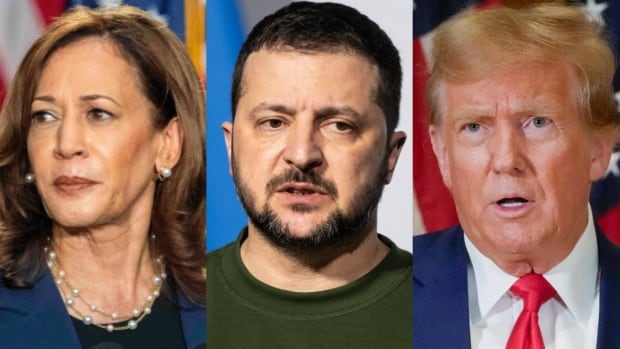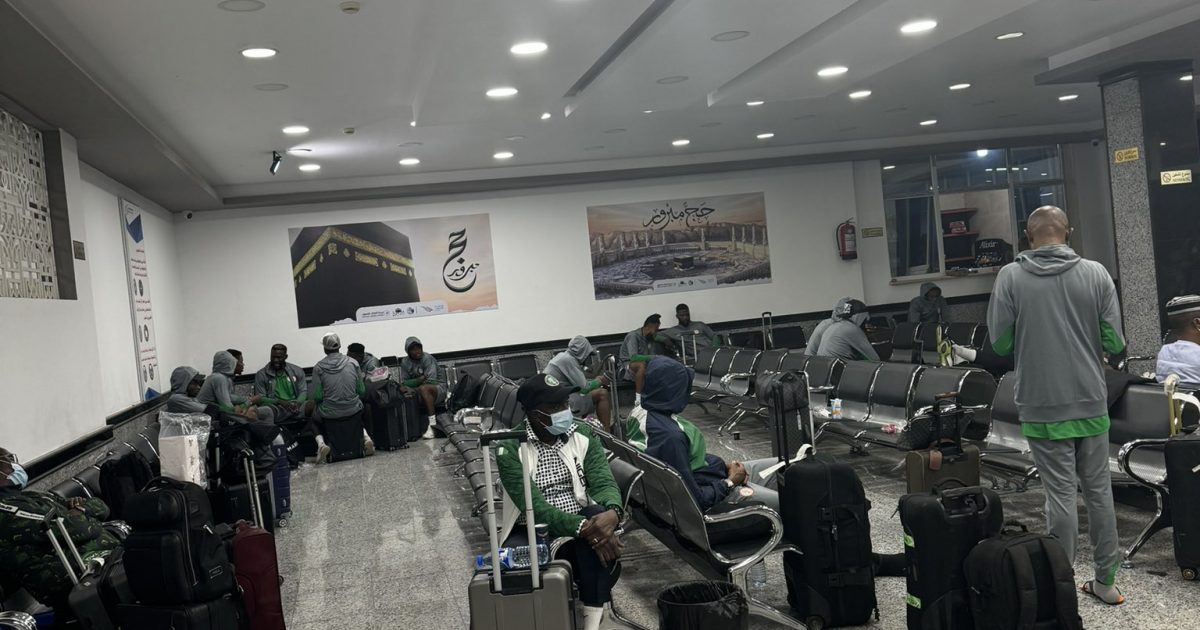The Ukrainian government will have to adjust to a new face in the White House after U.S. voters choose a new president this fall.
The pending shift in Oval Office leadership could have profound implications for Kyiv, which has received strong support from the administration of U.S. President Joe Biden during its two-plus years of fighting Russia’s all-out invasion.
However, with Biden’s departure from the presidential race, there is uncertainty about what will happen at the polls on Nov. 5. For Kyiv, that raises the question of how a change in White House leadership may affect U.S.. support for Ukraine.
“The stakes are really enormous for leaders in Ukraine,” said Peter Harris, an associate professor of political science at Colorado State University.
After weeks of growing dissent among Democrats, U.S. President Joe Biden has officially ended his re-election campaign and thrown his support behind Vice-President Kamala Harris.
The reality has left Ukraine hedging its bets on who may be at the helm of the U.S. government next year.
As such, Ukrainian officials have already reached out to two individuals who could succeed Biden in office: U.S. Vice-President Kamala Harris, the apparent front-runner to be the Democratic nominee, and former U.S. president Donald Trump, the Republicans’ presidential pick.
An existing relationship
If Kamala Harris wins the Oval Office, Kyiv will be dealing with a leader who has been part of an administration that has backed Ukraine’s fight with Russia, providing tens of billions of dollars in military aid.

On Tuesday, Andriy Yermak, chief of staff to Ukrainian President Volodymyr Zelenskyy, spoke with Phil Gordon, the national security adviser to the U.S. vice-president.
According to Yermak’s office, the call involved a discussion of the ongoing Russian attacks on Ukraine’s cities and the situation at the front, and “emphasized” a need to equip Ukraine with modern air-defence systems.
Observers believe the relationship between Washington and Kyiv would not change drastically if Kamala Harris wins the election.
“I would expect that she’ll maintain Joe Biden’s policy of supporting Ukraine,” said Peter Harris, who co-authored a recent paper examining U.S.. interests in Ukraine and the role politics could play in shaping future support.
That opinion is echoed by Anastasiia Vlasenko, a research associate at Harvard University’s Ukrainian Research Institute (HURI) who also predicts a level of “agenda continuity” in a Kamala Harris-led government.
A familiar face
Trump has been on Ukraine’s radar for some time — as has the more general possibility of change in the White House, even if the timing of Biden’s departure had not been foreseen, Vlasenko said.
“It’s not like the Ukrainians did not expect natural change of American leadership to occur over time,” she said.
But a second Trump term could put military support for Ukraine “in jeopardy,” while also having potential implications for NATO, said Peter Harris.

Zelenskyy and Trump spoke this week, with Trump reporting that they had “a very good call.”
The Ukrainian leader, meanwhile, said he’d congratulated the Republican leader on accepting his party’s nomination and condemned the recent attempt on Trump’s life.
Zelenskyy has dealt with the Republican nominee in the past, having been elected as Ukraine’s president in 2019 while Trump was in office.
The content of an infamous phone call between Zelenskyy and Trump was at the core of Trump’s first impeachment trial. Trump was later acquitted by the U.S. Senate.
Trump’s views on Ukraine have made repeated headlines over the course of the war. He first praised the actions of Russian President Vladimir Putin, then called them “appalling.” He’s repeatedly claimed he will end the war, without explaining how.
The Ukrainian president recently told the BBC that it would be “hard work” to deal with a re-elected Trump — however, Zelenskyy said Kyiv would work with anyone sitting in the Oval Office.
From parts of downed planes and bullet-riddled helmets to uniform patches, a volunteer group in Kyiv is selling Russian items found on the battlefields to raise money for the war effort and buy drones for Ukraine.
HURI’s Vlasenko said another Trump presidency would bring “a certain level of unpredictability” with it.
But in terms of his stated ability to end the war, Lysenko said even a U.S. president can only do so much and Trump would not be able to unilaterally force Ukraine and Russia to negotiate.
Running mates
Beyond the top of the ticket, U.S. voters will also weigh the choice of presidential candidates’ running mates.
Trump has picked Republican Sen. J.D. Vance, a rookie senator from Ohio who has been critical of U.S. aid to Ukraine.
Kamala Harris has not yet picked a running mate. That is expected to happen within the next two weeks.

Peter Harris questions how much influence Vance would have in the Oval Office, saying there’s “no chance” Trump would allow a second-in-command to have a say over him.
But he acknowledged that someone who becomes vice-president could also become a president on short notice.
If a scenario emerged in which Trump was elected and then could not serve, that doesn’t necessarily mean Vance would be in a position to take the U.S.. in an entirely new direction, given the political realities of being an un-elected leader, Vlasenko said.
Until the next president
In a televised speech on Wednesday evening, Biden explained his rationale for leaving behind his campaign for a second term as president. As he restated his support for Kamala Harris as his successor, Biden said his focus is on unifying the party and in assuring that the country’s democracy is safe.
During his remaining time in office, Biden said he will focus on his presidential duties. He reiterated that support for Ukraine will remain among his priorities.
Peter Harris said the Ukraine issue could be used by Biden and Kamala Harris to help draw “dividing lines” between how a Democratic-run White House would operate versus one led by a Republican leader.
Vlasenko said Biden’s actions on Ukraine in the next six months will provide a view of where a Harris administration would go.
“We should actually watch very carefully what Biden will be doing,” she said.








